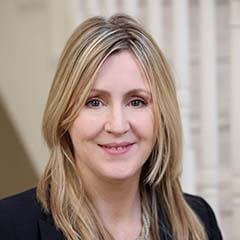29 April 2021
QAA Annual Conference Blog - Engaging Students in Academic Integrity

Author
Gráinne Mooney
Communications Manager, Quality and Qualifications Ireland
Kevin McStravock
Vice President for Academic Affairs, Union of Students in Ireland
In the lead up to our Annual Conference on 11-13 May, we are running a series of blogs by conference session presenters. In this blog, Gráinne Mooney from Quality and Qualifications Ireland and Kevin McStravock from the Union of Students in Ireland look at the ways in which students are engaged in the protection of academic integrity.
In 2019, Ireland became the first country in Europe to enact legislation to crack down on the growing issue of contract cheating in education and training. Quality and Qualifications Ireland (QQI), the quality regulator for Irish education and training, had recognised for some time that learner cheating by essay mills was becoming a growing threat to the integrity of Irish education.
The Qualifications and Quality Assurance (Education and Training) (Amendment) Act 2019 included a new provision that specifically empowered QQI to prosecute those who facilitate academic cheating. These infractions include impersonating another student, providing exam answers or assignments, advertising cheating services and publishing these adverts.
While QQI acquired these new prosecutorial powers, it was quickly clear that a great deal of work needed to be done on the prevention side with higher education staff and students, to create awareness of this threat and to work together to create solutions and common approaches to tackling this end.
The National Academic Integrity Network was established in November 2019 as a forum to better understand the nature of academic misconduct encountered in Irish higher education institutions; to identify measures that can be taken to both prevent and address misconduct; and to develop enhancement initiatives to foster a culture of academic integrity.
The Network quickly established three working groups: the first, to develop national good practice guidelines, along with a common vocabulary to describe all aspects of academic cheating; the second, to establish the nature, extent and understanding of academic misconduct in Irish higher education institutions; and the final one, to develop communications strategies to educate students on the risks of engaging in this type of activity.
Strong student representation was a given for the success of the Communications Working Group. The group is currently chaired by the Vice President for Academic Affairs of the Union of Students in Ireland and membership includes students’ union representatives from a number of third-level institutions.
Clear principles from the outset were that any student-facing communications should not be authoritarian in nature. It was vital to understand the pressures student face that may drive them to engage in academic cheating. In particular, we needed to address the specific challenges faced by vulnerable student cohorts - first-year students, international students especially students for whom English is not their first language, final-year students, students with disabilities, and students who have entered through access programmes.
Support to address many of these concerns is available, but possibly not well accessed across many institutions - academic writing and maths support centres, libraries and mental health services. Communications should place an emphasis on highlighting these to students.
It was equally important, however, that this conversation did not take place in a vacuum; we needed institutional representatives to be involved in this conversation to ensure messages are being mainstreamed into everyday college life, complementing existing academic integrity efforts within individual institutions. Academic and student support services staff were also identified as key secondary audiences in terms of amplifying the effect of our communications.
A nationwide digital communications campaign was rolled out to coincide with Ireland’s first National Academic Integrity Week in October 2020. Assets were shared with students’ unions and higher education communications teams across the country to maximise reach to students setting out on a new academic year in a very changed teaching and learning environment. It was agreed that communications should be ongoing throughout the academic year to coincide with pressure points such as exam season or end-of-semester deadlines.
Analysis of social media metrics and student focus groups this month revealed that, while messaging resonated well with students, the campaign was not cutting through the digital noise of an online living and learning environment and was not embedded within their institution. Feedback suggested that academic staff should be more proactive in terms of flagging academic integrity messages and institutional supports at repeated stages from first-year induction, to setting of individual assignments and final-year dissertations.
Feedback from students also indicated a desire for enhanced supports, and more flexible approaches to assessment, with many indicating that the bunching of assessment deadlines and perceived rigidity with deadlines can often add to the pressure that students are already under. The Communications Working Group has recently expanded its membership to include broader representation of support services and will be setting out to improve the reach of its messaging within institutions over the coming year.
A crucial element of engaging students in academic integrity is centring their needs within the conversation and ensuring that dialogue is built on a platform of trust. Prevention is better than cure in this case, and the National Academic Integrity Network continues to take tangible action in preventing learners from falling prey to the advances of essay mills, and in developing a culture of academic integrity within institutions.
Gráinne Mooney and Kevin McStravock will deliver a breakout session entitled ‘Engaging Students in Academic Integrity’ at the QAA Annual Conference in May.

